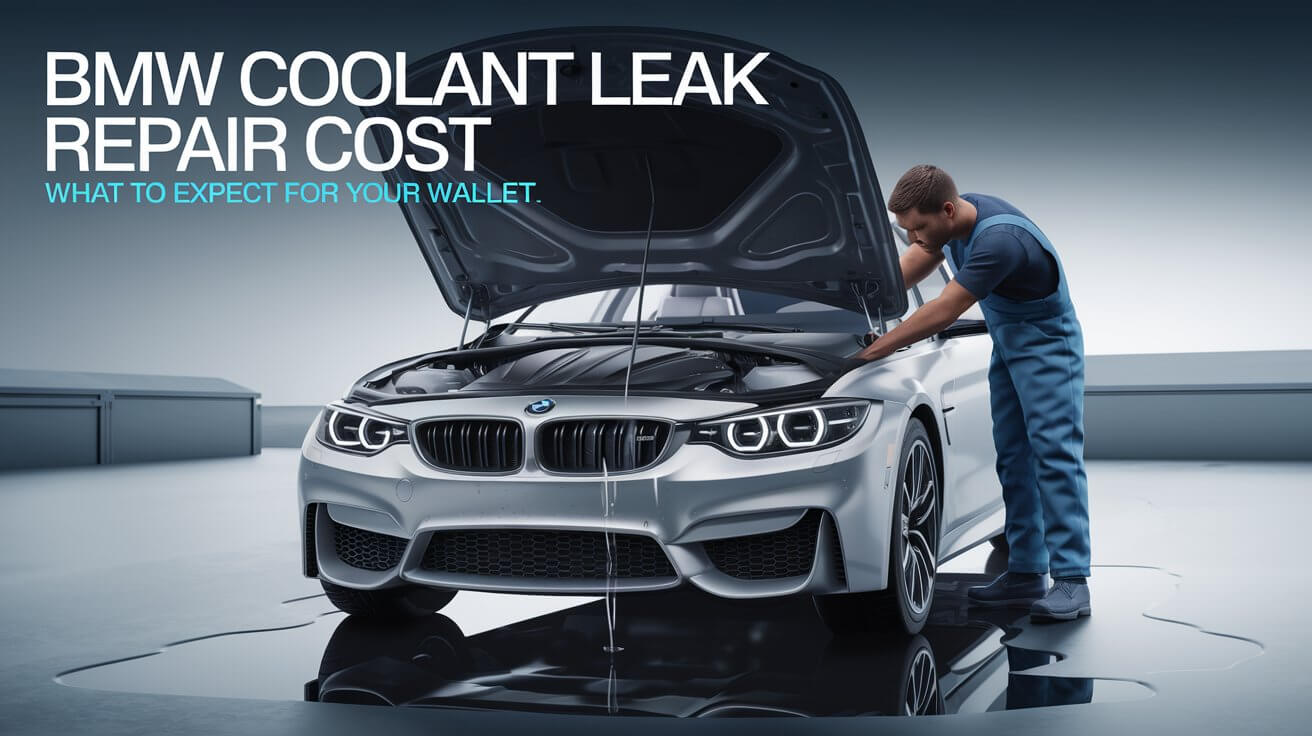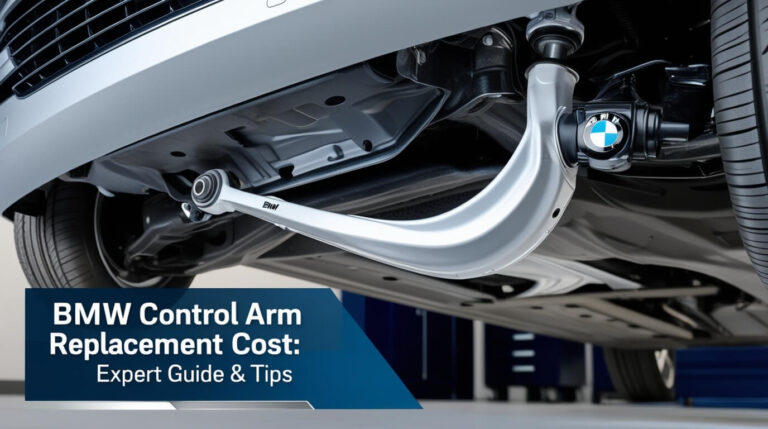
Is your BMW losing coolant? You’re not alone. Coolant leaks are a common issue for BMW owners, and the repair costs can vary widely. BMW coolant leak repair costs typically range from $150 to $1,500, depending on the severity of the leak and the specific model. This guide will walk you through everything you need to know about BMW coolant leak repairs, from identifying the problem to estimating costs and exploring your options.
Common Causes of BMW Coolant Leaks
BMW coolant systems are complex, and leaks can spring up for various reasons. Let’s look at the most frequent culprits:
Aging Hoses and Seals
Over time, rubber hoses and seals in your BMW’s cooling system can deteriorate. Heat, pressure, and chemical reactions gradually weaken these components, leading to cracks and leaks. Replacing hoses is often a straightforward and relatively inexpensive fix, with costs ranging from $100 to $300.
Radiator Issues
The radiator is a crucial component in your BMW’s cooling system. Corrosion, physical damage, or manufacturing defects can cause radiator leaks. Repair costs for radiator issues in BMWs typically fall between $500 and $1,000, depending on the extent of the damage and whether a full replacement is necessary.
Water Pump Failures
BMW water pumps, especially in older models, are known for their susceptibility to failure. A faulty water pump can lead to coolant leaks and potential engine overheating. Replacing a BMW water pump usually costs between $600 and $1,200, including parts and labor.
Thermostat Housing Problems
The thermostat housing in BMWs can develop cracks or leaks, particularly in models with plastic housings. Repair costs for thermostat housing issues generally range from $300 to $600.
Identifying a BMW Coolant Leak
Catching a coolant leak early can save you money and prevent more serious damage. Here’s what to look out for:
Visual Indicators
Check for puddles or stains under your parked BMW. Coolant is typically green, pink, or blue and has a sweet smell. Also, inspect the coolant reservoir regularly. If the level drops quickly between checks, you likely have a leak.
Performance Symptoms
A coolant leak can cause your BMW’s engine to overheat. Watch for the temperature gauge climbing higher than usual or fluctuating erratically. You might also notice a sweet smell coming from the engine bay, especially after driving.
Warning Lights and Messages
Modern BMWs have sophisticated monitoring systems. Pay attention to warning lights or messages on your dashboard related to coolant levels or engine temperature. These can be early indicators of a developing leak.
DIY vs. Professional Repair for BMW Coolant Leaks
When faced with a coolant leak, you might wonder whether to tackle the repair yourself or seek professional help. Here’s what to consider:
When to Attempt DIY Fixes
Simple issues like replacing a coolant hose or refilling the coolant can often be done at home. If you’re mechanically inclined and have the right tools, you could save on labor costs. However, always consult your BMW’s manual and ensure you’re comfortable with the task before starting.
Benefits of Professional Repairs
For more complex issues or if you’re unsure about the source of the leak, professional repair is often the safer choice. BMW specialists have the expertise and equipment to diagnose and fix coolant leaks accurately. While it might cost more upfront, professional repairs can prevent further damage and ensure the job is done right.
Factors Affecting BMW Coolant Leak Repair Costs
Several factors influence the cost of repairing a coolant leak in your BMW:
BMW Model and Year
Newer BMW models often have more complex cooling systems, which can make repairs more expensive. Older models might have cheaper parts but could require more extensive work due to age-related wear.
Extent of Damage
A simple hose replacement will cost far less than repairing a cracked engine block. The severity of the leak and any related damage significantly impacts repair costs.
Parts Quality and Availability
Using OEM (Original Equipment Manufacturer) parts typically costs more than aftermarket alternatives. However, OEM parts often offer better quality and fitment. The availability of parts for your specific BMW model can also affect pricing.
Labor Rates
Labor costs vary widely depending on your location and whether you choose a BMW dealership, independent specialist, or general mechanic. Dealerships usually charge the highest rates, while independent BMW specialists often offer a balance of expertise and more competitive pricing.
Average BMW Coolant Leak Repair Costs
Let’s break down the typical costs for different levels of coolant leak repairs:
Minor Repairs (Hose Replacements)
Replacing a coolant hose is one of the simpler repairs. Costs typically range from $150 to $400, including parts and labor. This type of repair is often manageable for DIY enthusiasts, potentially reducing costs to $50-$100 for parts alone.
Moderate Repairs (Radiator or Water Pump)
Replacing a radiator or water pump falls into the moderate repair category. Expect to pay between $500 and $1,200 for these repairs. The wide range accounts for differences in BMW models and whether you choose OEM or aftermarket parts.
Major Repairs (Engine-related Issues)
If the coolant leak has caused engine damage or requires extensive work, costs can escalate quickly. Major repairs, such as replacing a head gasket or repairing a cracked engine block, can range from $1,500 to $3,000 or more.
Breakdown of BMW Coolant Leak Repair Expenses
Understanding the components of repair costs can help you evaluate quotes and make informed decisions:
Parts Costs
The cost of parts varies widely based on the component needing replacement and whether you choose OEM or aftermarket options. For example, a coolant hose might cost $20-$50, while a new radiator could run $200-$600 or more.
Labor Costs
Labor often makes up a significant portion of repair costs. BMW specialist rates typically range from $100 to $200 per hour. The time required for repairs varies, from about an hour for simple hose replacements to several hours for more complex jobs.
Diagnostic Fees
Many shops charge a diagnostic fee to pinpoint the source of the leak. This fee usually ranges from $100 to $200 but is often applied to the cost of repairs if you proceed with the work.
Saving Money on BMW Coolant Leak Repairs
While BMW repairs can be costly, there are ways to minimize expenses:
Regular Maintenance Tips
Preventive maintenance is key to avoiding expensive repairs. Regular coolant flushes, inspections, and addressing minor issues promptly can prevent more serious problems from developing.
Comparing Repair Quotes
Don’t settle for the first quote you receive. Get estimates from multiple reputable shops, including dealerships, independent BMW specialists, and general mechanics. Be sure to compare like-for-like quotes, considering the quality of parts and warranties offered.
Considering Aftermarket Parts
While OEM parts are often preferred for their quality and fitment, aftermarket alternatives can offer significant savings. Research reputable aftermarket brands for your BMW model to find a balance between cost and quality.
Long-term Consequences of Ignoring BMW Coolant Leaks
Delaying repairs can lead to more severe and expensive problems:
Engine Damage Risks
Coolant leaks can cause engine overheating, potentially leading to warped cylinder heads, blown head gaskets, or even a cracked engine block. These issues can cost thousands to repair or might necessitate engine replacement.
Impact on Vehicle Value
A history of coolant system problems and repairs can negatively affect your BMW’s resale value. Keeping up with maintenance and addressing leaks promptly helps maintain your car’s value.
Safety Concerns
An overheating engine can leave you stranded or cause a breakdown in dangerous situations. Prioritizing coolant system health is crucial for your safety and the longevity of your BMW.
Preventive Measures for BMW Coolant System Health
Taking proactive steps can help you avoid costly repairs:
Routine Inspections
Regularly check coolant levels and inspect visible components of the cooling system. Look for signs of wear, cracks, or leaks in hoses and connections.
Coolant Flushes and Replacements
Follow BMW’s recommended schedule for coolant flushes and replacements. Fresh coolant helps prevent corrosion and maintains optimal cooling system performance.
Addressing Minor Issues Promptly
Don’t ignore small leaks or warning signs. Addressing minor problems early can prevent them from escalating into major, expensive repairs.
Conclusion: Balancing Cost and Quality in BMW Coolant Leak Repairs
BMW coolant leaks can frustrate owners and cost money. Knowing the causes, costs, and repair options helps you decide what to do. You can fix minor issues yourself or get professional help for complex problems. Taking care of your BMW’s cooling system keeps your car running well for longer.
Remember, the cost of repairing a coolant leak in your BMW can vary widely, from around $150 for simple fixes to over $1,500 for major repairs. By staying vigilant, performing regular maintenance, and addressing issues promptly, you can minimize repair costs and keep your BMW running smoothly for years to come.






